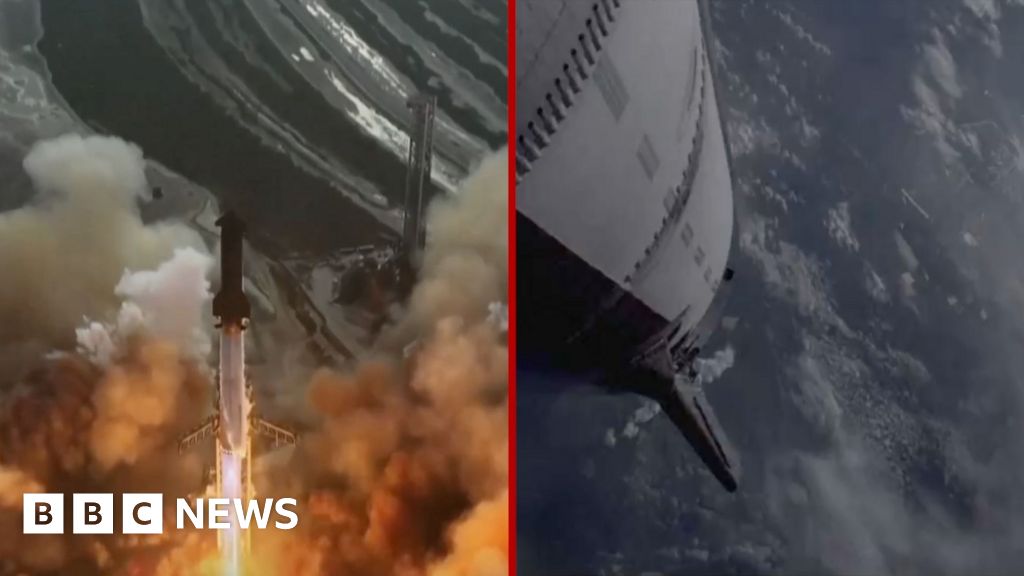In the wake of historical achievements made during the Apollo missions between the 1960s and 1970s, the race for a new generation of lunar explorers has gathered momentum. Only five Apollo astronauts remain after the recent passing of Jim Lovell, commander of Apollo 13, and their stories continue to inspire the quest to return to the Moon.
NASA's Artemis program is poised to place astronauts back on the lunar surface, with ambitions for a sustainable presence by the end of this decade. Meanwhile, China is preparing its lunar ambitions, aiming for crewed missions by 2030 after their successful 2024 probe landing on the far side of the Moon. Despite setbacks, private entities like SpaceX and Boeing are making strides in developing lunar technology, although both have faced significant challenges, such as Boeing's Starliner problems and SpaceX's Starship launches.
Apollo 13, renowned for its near-fatal malfunction, has left its mark on history. Jim Lovell, alongside fellow astronauts Frank Borman and Bill Anders, was instrumental in NASA's lunar objectives. Lovell’s journey came to a close with his retirement in 1973, transitioning to a life in telecommunications. With his wife Marilyn passing in August 2023, Lovell's legacy remains etched in the annals of space history.
Among the surviving Moonwalkers are Edwin "Buzz" Aldrin from Apollo 11, who famously declared the lunar view "magnificent desolation” while remaining an ardent advocate for space exploration. The youngest Moonwalker, Charles Duke of Apollo 16, celebrated the dram of lunar travel and now lives in Texas, hoping to inspire new astronauts.
Fred Haise, part of the Apollo 13 crew, narrowly missed landing on the Moon, while Harrison Schmitt, the first scientist on lunar soil from Apollo 17, transitioned to a political career after his NASA tenure. David Scott, as commander of Apollo 15, brought the first lunar roving vehicle, changing the game for lunar exploration.
As NASA forges ahead, the anticipation of what the next generation of lunar adventurers will accomplish remains a thrilling prospect for space enthusiasts worldwide.
NASA's Artemis program is poised to place astronauts back on the lunar surface, with ambitions for a sustainable presence by the end of this decade. Meanwhile, China is preparing its lunar ambitions, aiming for crewed missions by 2030 after their successful 2024 probe landing on the far side of the Moon. Despite setbacks, private entities like SpaceX and Boeing are making strides in developing lunar technology, although both have faced significant challenges, such as Boeing's Starliner problems and SpaceX's Starship launches.
Apollo 13, renowned for its near-fatal malfunction, has left its mark on history. Jim Lovell, alongside fellow astronauts Frank Borman and Bill Anders, was instrumental in NASA's lunar objectives. Lovell’s journey came to a close with his retirement in 1973, transitioning to a life in telecommunications. With his wife Marilyn passing in August 2023, Lovell's legacy remains etched in the annals of space history.
Among the surviving Moonwalkers are Edwin "Buzz" Aldrin from Apollo 11, who famously declared the lunar view "magnificent desolation” while remaining an ardent advocate for space exploration. The youngest Moonwalker, Charles Duke of Apollo 16, celebrated the dram of lunar travel and now lives in Texas, hoping to inspire new astronauts.
Fred Haise, part of the Apollo 13 crew, narrowly missed landing on the Moon, while Harrison Schmitt, the first scientist on lunar soil from Apollo 17, transitioned to a political career after his NASA tenure. David Scott, as commander of Apollo 15, brought the first lunar roving vehicle, changing the game for lunar exploration.
As NASA forges ahead, the anticipation of what the next generation of lunar adventurers will accomplish remains a thrilling prospect for space enthusiasts worldwide.
















